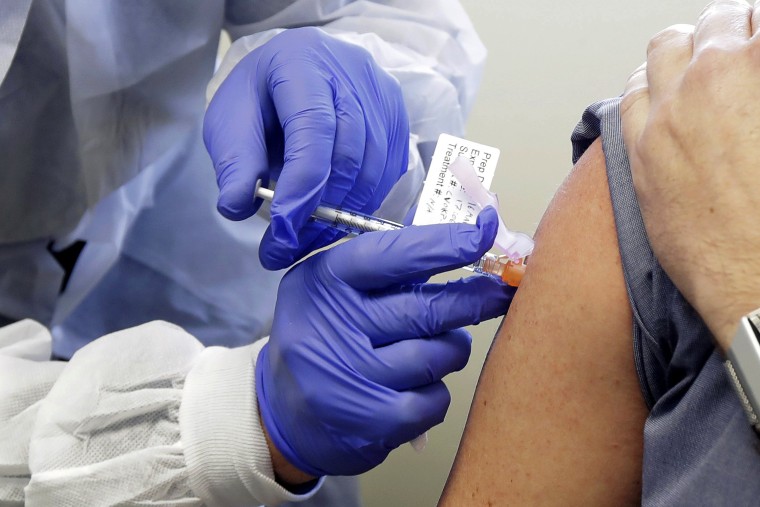There's been quite a bit of reporting in recent weeks about Donald Trump losing interest in the coronavirus pandemic. The Washington Post recently reported, for example, "The president, for his part, has expressed little interest in the specifics of the response outside of updates on a coronavirus vaccine -- or the 'cure,' as he frequently calls it."
In other words, even Trump, as disengaged as he is, seems to realize that a vaccine matters. In fact, this morning, he sort of made a prediction about it.
President Donald Trump said Thursday that a vaccine for the coronavirus could be ready before Election Day, contradicting the timeline that many health experts have said is realistic. When asked on Geraldo Rivera's radio show if a vaccine could be ready by Nov. 3, Trump said, "I think in some cases, yes, possible before, but right around that time."
What a remarkable coincidence. Sure, actual experts believe it's possible we'll see a vaccine well after the election, but the president said we might even see it sooner "in some cases." (I have no idea what "in some cases" might mean in this context.)
But what struck me as especially notable is why, exactly, Trump believes the vaccine might be ready so quickly.
"I'm rushing it. I am. I'm pushing everybody," Trump told Rivera of the push for a vaccine. Trump also claimed a vaccine wouldn't be ready for "two years" if a different president were in office.
The funny thing about vaccine development is that presidential "rushing" and "pushing" is irrelevant. The president may not realize this, but upbraiding people doesn't make the development, testing, and distribution process proceed any faster.
I'm trying to imagine Trump's perceptions about how this works. Perhaps he imagines a group of scientists sitting around saying, "Well, I was going to take my time, lazily going about the search for a safe and effective vaccine for this deadly virus, but since Trump is 'rushing it,' I won't take that three-hour lunch break after all."
Perhaps Trump thinks he can spur development of a vaccine by upbraiding people. It's also possible that he sees his upbraiding skills as somehow unique. The likelihood of Trump personally taking credit for the development of a vaccine, whenever one might emerge, is roughly 100%.
But in reality, this process wouldn't look much different if he'd never been elected.

